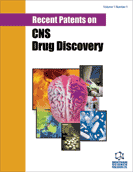Abstract
The gap between basic neuroscience and clinical psychiatry in the treatment of anxiety disorders has been steadily diminishing over recent years. Among the leading advances in this field of translation research is the application of knowledge on the neurobiology of fear memory to the treatment of anxiety disorders in humans. Animal studies have identified N-methyl-D-aspartate (NMDA) receptors as crucial in fear memory acquisition and consolidation, as well as in its extinction and reconsolidation. Based on this, the NMDA receptor partial agonist D-cycloserine, which facilitates fear extinction in rodents, has been shown to increase the effect of exposure therapy in psychiatric patients for conditions such as phobias, social anxiety and obsessive-compulsive disorder. In this article, we review current strategies for targeting the NMDA receptor in the treatment of fear-related disorders, analyzing experimental results, clinical data, and recent patents in the field, while also addressing potential new approaches to explore this field of drug discovery.
Keywords: Fear disorders, anxiety disorders, N-methyl-D-aspartate receptor, reconsolidation, extinction, exposure therapy
 2
2





















